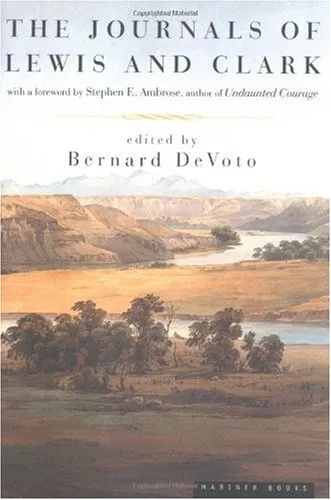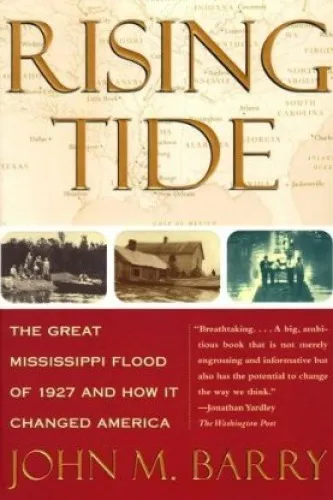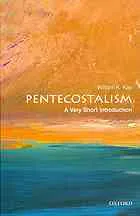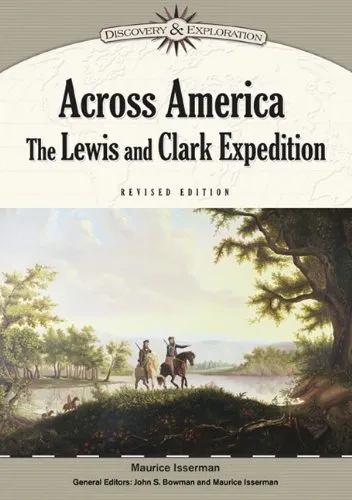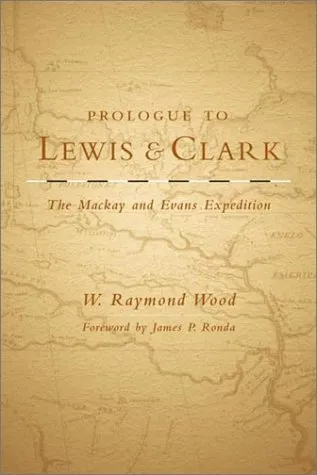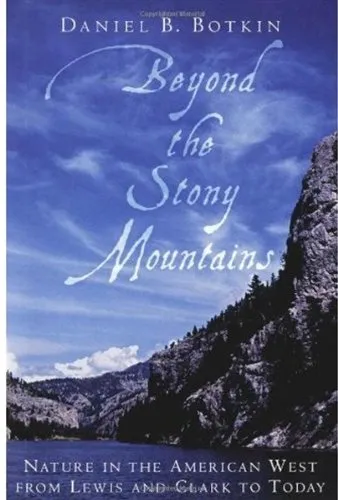The Journals of Lewis and Clark
4.7
Reviews from our users

You Can Ask your questions from this book's AI after Login
Each download or ask from book AI costs 2 points. To earn more free points, please visit the Points Guide Page and complete some valuable actions.Related Refrences:
Introduction to 'The Journals of Lewis and Clark'
The book The Journals of Lewis and Clark is a timeless treasure that offers readers an unparalleled glimpse into the historic expedition that shaped the United States' perception of its western territories. Written by the intrepid explorers Meriwether Lewis and William Clark, and later compiled and annotated by historians such as Bernard DeVoto and Stephen E. Ambrose, the book is more than just a historical record — it is a vivid tale of adventure, discovery, and resilience.
In the early 19th century, President Thomas Jefferson commissioned Lewis and Clark to explore the vast lands acquired through the Louisiana Purchase. Their journey across unknown terrain, encountering diverse cultures, documenting flora and fauna, and overcoming unpredictable challenges, was monumental. It laid the groundwork for Westward Expansion and profoundly influenced America’s identity.
Summary of the Book
The journals capture the day-to-day experiences of the expedition, starting from St. Louis in May 1804 and culminating at the Pacific Ocean in November 1805. This epic voyage spans over 8,000 miles, traversing rivers, plains, mountains, and coasts. The book is a detailed account of the explorers' interactions with Native American tribes, descriptions of newly discovered plant and animal species, and the sheer determination required to survive in challenging and often unfamiliar conditions.
Through the firsthand observations of Lewis and Clark, readers gain insight into the difficulties faced by the Corps of Discovery. Whether it was navigating treacherous waters, enduring harsh winters, or bridging cultural divides with Native inhabitants, the journals present a gripping narrative of human perseverance. The compilation also provides diplomatic interactions with tribes, geographic discoveries, and scientific observations, which were critical for Jefferson's mission to map the uncharted west and establish American presence in the region.
Key Takeaways
1. Resilience and Leadership: Lewis and Clark demonstrate extraordinary leadership and courage in guiding the Corps of Discovery through dangerous and unfamiliar territory.
2. Cultural Encounters: The expedition serves as a record of interactions with Native American tribes, highlighting moments of cooperation, trade, and diplomacy.
3. Exploration and Discovery: The journals document groundbreaking discoveries of plant, animal, and geographic phenomena that enriched scientific knowledge of the time.
4. Legacy: The expedition's success paved the way for America's westward expansion, forever altering the nation's history and settlement patterns.
The book serves as a testimony to the power of curiosity, determination, and teamwork in pursuing seemingly impossible goals, providing invaluable lessons applicable even today.
Famous Quotes from the Book
"We proceed on." - This simple yet profound phrase, often recorded by Clark, embodies the spirit of persistence amidst adversity.
"The object of your mission is to explore the Missouri River…" - This directive from Jefferson encapsulates the grand ambition of the expedition.
"The men appear in good health and spirits." - Lewis frequently wrote about the camaraderie and resilience among the Corps of Discovery.
These quotes not only reflect the determination of the explorers but also serve as inspiration for readers striving to overcome challenges and achieve greatness.
Why This Book Matters
This book is more than a historical document; it is a testament to human resolve and exploration. By preserving the journals of Lewis and Clark, readers gain access to firsthand accounts of one of the most pivotal events in American history.
The expedition helped enhance scientific knowledge and understanding of North America, including its geography, biodiversity, and Indigenous cultures. It also reminds us of the delicate balance between exploration and the impact on native populations. Reading this book today allows us to reflect on the historical significance of the Louisiana Purchase and the exploration that followed.
The Journals of Lewis and Clark remain an enduring symbol of adventure. They teach us the importance of serving one's nation, understanding diverse cultures, and embracing courage for the unknown. As such, the book is not just about the past; it continues to inspire future generations.
Free Direct Download
You Can Download this book after Login
Accessing books through legal platforms and public libraries not only supports the rights of authors and publishers but also contributes to the sustainability of reading culture. Before downloading, please take a moment to consider these options.
Find this book on other platforms:
WorldCat helps you find books in libraries worldwide.
See ratings, reviews, and discussions on Goodreads.
Find and buy rare or used books on AbeBooks.
1205
بازدید4.7
امتیاز0
نظر98%
رضایتReviews:
4.7
Based on 0 users review
Questions & Answers
Ask questions about this book or help others by answering
No questions yet. Be the first to ask!
